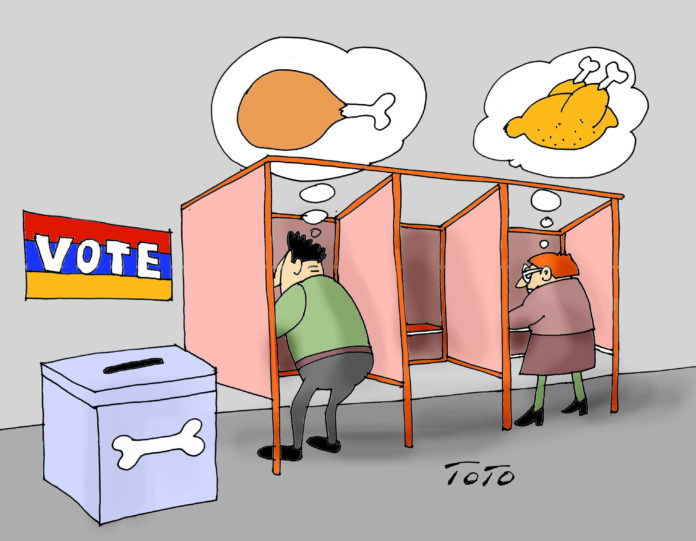By Edmond Y. Azadian
Armenia’s election campaign is running at full steam as April 2 is around the corner. There are nine alliances participating in the elections. Their slogans are out and most of the parties are promising “change.” But no one has yet revealed the direction of that “change” because based on past experience, after the elections, the direction of those changes is in reverse.
The polls are out and they express the popular sentiment fairly accurately. But the outcome of the elections may be completely different because most people do not vote the way they think. They are not at liberty to vote their conscience. If they are employed by the government; their destiny is predetermined; their vote is not a personal vote, but is an institutional vote. It has already been decided for them.
If they want to continue their employment past April 2, they better vote “wisely.”
Conversely, if they are not employed by the government, they can sell their vote in the open market. The price fluctuates from one precinct to another but the going rate is anywhere between $50-$100, a sum which can put food on the table for a few days. After that, the party which buys the vote loses interest in the fate of the voter.
No one can say Armenia restricts freedom of speech. People are free to express their opinions. Even newspapers are free to write anything and everything. For that reason, the media can be manipulated by individuals and groups to malign their opponents with impunity. The press stoops to astonishingly low levels since they are not beholden to any degree of accountability or libel laws.








